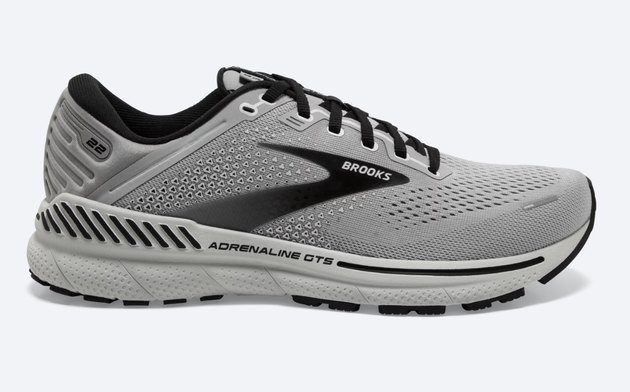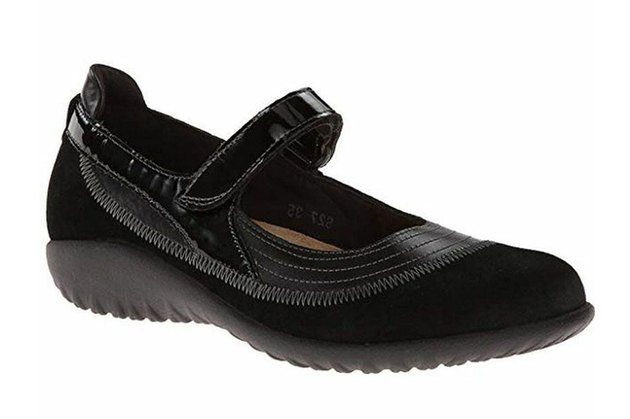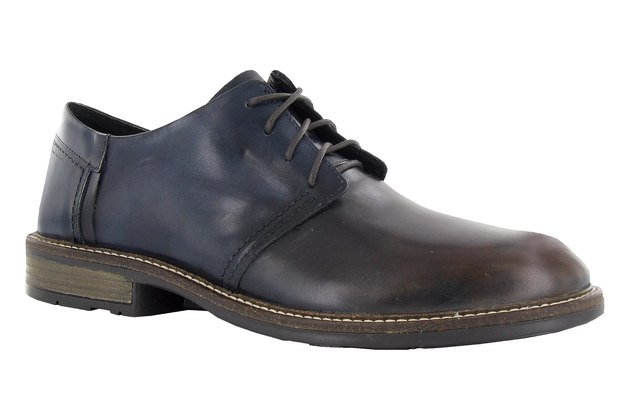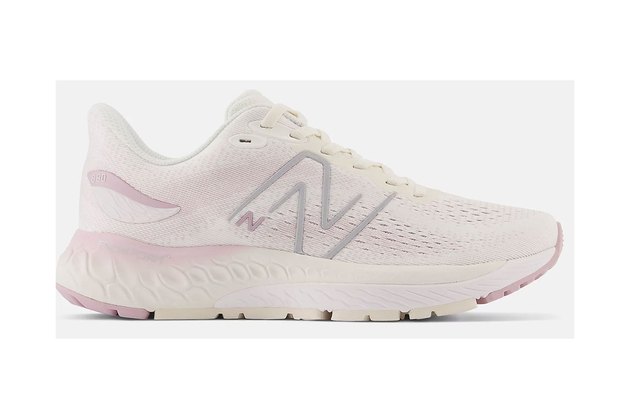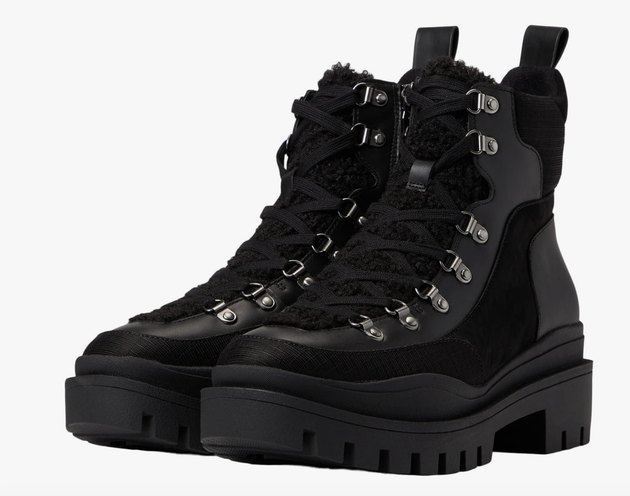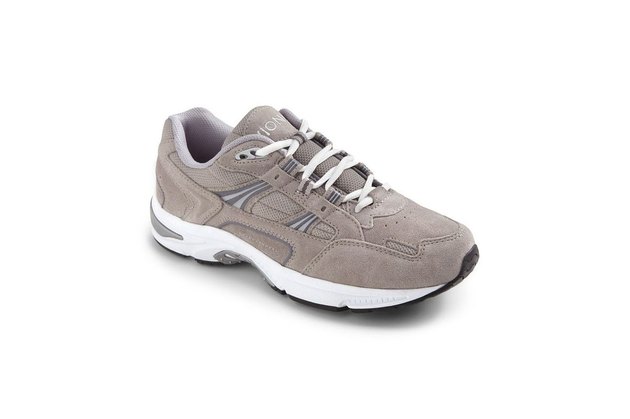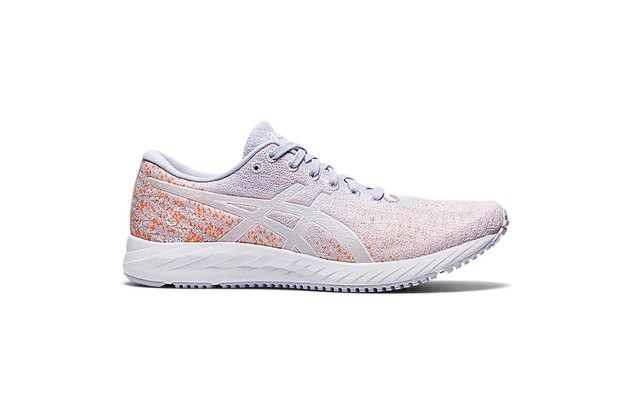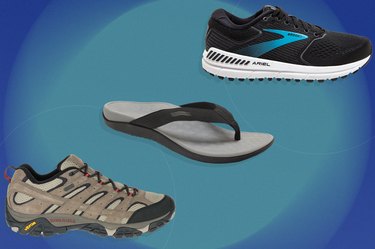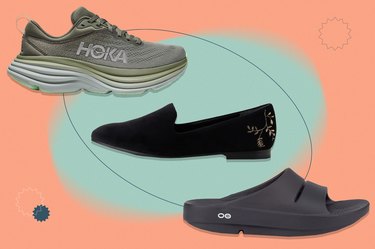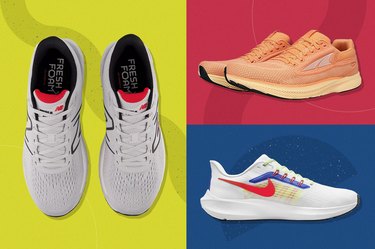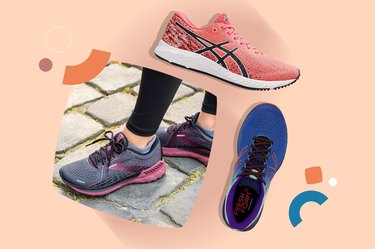
When many of us think about improving our posture, we might think of sitting up straighter and maybe redesigning our workspace. Though these two shifts are important, so are the shoes we choose to wear.
After all, our feet are our foundation, says Elizabeth Bass Daughtry, DPM, podiatrist at the Foot and Ankle Specialists of the Mid-Atlantic — Piedmont Division in Cary, North Carolina. When we have proper posture, we find balance, stability and overall body alignment, and part of this is having adequate support from the bottom up.
Video of the Day
Video of the Day
Dr. Daughtry says that the goal is to find a happy medium between high-heeled shoes and flat pairs.
"Shoes with a heel height of more than three inches disrupt your center of gravity, cause your pelvis to tilt forward and enhance the curvature of your lower spine," she says. "On the other hand, shoes that are too flat and unsupportive can lead to a higher risk of lower extremity issues including, but not limited to, heel pain, pain in the ball of the foot, sore joints and malalignment of the ankle, knee, back or hip joint."
Plus: "When walking, the force on your feet is five times your body weight, so supportive footwear that redistributes shock and aligns the body is imperative to maintaining proper posture," Dr. Daughtry adds.
It's also important to remember that because most of us have been working from home more than ever before, we are usually barefoot or wearing house slippers without proper orthotic support, says Jay Seidel, DPM, podiatrist with South Florida Podiatry.
"Because of this, many people are experiencing fallen arches or other foot stresses, which can lead to issues such as plantar fasciitis," he notes.
To ensure you're picking the right pair of kicks, we've rounded up the expert-backed shoes that are good for your feet and posture. Here's our guide.
The Best Shoes for Good Posture
- Best Overall: Brooks Adrenaline GTS 22 Men's and Women's ($99.95, Brooks Running)
- Best for Arch Support: Women's NAOT Kirei and Men's NAOT Chief (From $194.95, Zappos)
- Best for Wider Feet: New Balance Fresh Foam 880v12 Women's and Men's (From $89.99, Amazon)
- Best Waterproof: Women's Vionic Jaxen and Men's Vionic Walker (From $109.95, Zappos)
- Best Lightweight: Asics GEL-DS Trainer 26 Women's and Men's (From $59.95, Asics)
How We Chose
Who knows what shoes actually provide the support we need to improve our posture? Podiatrists, of course! We spoke with two of these doctors, who gave their professional product recommendations and explained what to look for in supportive kicks.
We based our choices on the following criteria:
- Comfort
- Fit
- Durability
- Style
- Cost
For more information on how we choose and cover products, click here.
A Note on Gendered Language
We try to avoid using gendered language here at LIVESTRONG.com, but manufacturers typically market shoes according to gender, which is why we have listed both women's and men's picks below. However, the main difference between most men's and women's shoes lies in the shoe width and size, with men's shoes often running larger and wider to support greater weights. We encourage readers to opt for whatever type of shoe they're most comfortable with, though, regardless of marketing lingo.
1. Brooks Adrenaline GTS 22
Ideally, our shoes should fit and feel like they're catered to our specific feet and needs. Dr. Seidel says that's why Brooks is a great brand to consider, because its shoes offer midfoot, arch and heel-counter stiffness.
"This added structural support allows for better support for the foot during the different stages of gait," he says.
Also, he says these shoes improve fit and natural foot joint positioning, thereby improving natural gait and improving posture.
The women's choice is available in 28 different styles and colors, and it comes in different width options, including narrow, medium, wide and extra-wide. The men's alternative by the same name comes in 18 styles and has the same width selections.
If you try it on and it's not perfect? That's OK! Dr. Seidel says Brooks' shoes can accommodate shoe inserts, too.
2. NAOT Kirei and NAOT Chief
Dr. Daughtry says the NAOT Footwear brand may be your best fit for those who need a little extra arch support. This is because most of the styles balance features for stability, shock absorption, comfort and adjustability to suit various needs.
Specifically, she says, the Mary Jane-style NAOT Kirei offers a padded technical lining to provide comfort and moisture absorption for women on-the-go. For men, NAOT Chief offers support with added cushion where your arches need it the most. With both pairs of kicks, you can choose your width, from medium to wide.
All of NAOT's shoes will feel reasonably comfortable, though, because Dr. Daughtry explains they feature a removable, anatomic cork and latex footbed, which is covered in suede and molds to the shape of your arch. "This offers proper stability and lower extremity alignment, which is key in addressing proper posture," she adds.
3. New Balance Fresh Foam 880v12
Generally speaking, Dr. Seidel says New Balance shoes are a solid choice for footwear that supports posture. How come? They're a tad wider, which most people tend to need, especially if they have a foot deformity.
"These wider shoes allow for better shoe fit and better ground contact, thereby facilitating a more stable gait and better posture," he says.
The New Balance Women's and Men's Fresh Foam 880v12 are super-comfortable to wear while also offering support and versatility. You can choose from 14 different colors and styles for women and nine for men. Plus, nearly all sizes offer a choice between narrow, normal, wide and extra-wide, so you're sure to find something that caters to your specific foot.
4. Vionic Jaxen and Vionic Walker
If you're someone who doesn't need a lot of extra support but you do require durability for hikes or commuting to work in snowy or wet weather, Vionic could be ideal for your daily routine.
Not only does Vionic come with built-in arch support, nearly all of the brand's shoes — from boots and sneakers to sandals — are made of waterproof or water-resistant materials.
"For those with low to average arch height, these provide a more plantigrade foot position when walking. This will allow for better postural positioning and decrease the valgus and varus position of the ankle and knee, enabling better overall body posture," Dr. Seidel says. Try the Vionic Jaxen for women or the Vionic Classic Walker for men.
5. Asics GEL-DS Trainer 26
Like Brooks, Dr. Seidel says Asics provides more midfoot, arch and heel counter stiffness, which better supports the foot while you move.
Because this improves fit and natural foot joint positioning, it also improves natural gait and posture, making these shoes an ideal pick for those who need to wear shoes but want them to be lightweight.
The GEL-DS Trainer 26 is lightweight yet sturdy, with added heel support. You will feel every movement while also feeling stable on your toes.
The men's shoe offers six styles and patterns, while the women's has four options. If you try them on and they're not quite perfect, Dr. Seidel says this brand often allows for the insertion of custom-molded orthotics, which provide customization.
What to Look for in Shoes for Posture
1. Fit
Dr. Daughtry says understanding the foot type you have — high-arch, low-arch or medium-arch — is key to finding the best supportive shoes for your feet. How come? You'll get a snug-yet-cozy fit that caters to the unique needs of your feet.
To figure out your arch height, the Mayo Clinic recommends dipping your foot in water, stepping on a piece of cardboard and examining the footprint you've made:
- High arches: You see little of your footprint/the middle of your print is dry
- Low (flat) arches: Your footprint looks like a complete foot
- Medium arches: The middle part of your arch is about half filled
2. Style
If you don't like the way a pair of shoes looks, you likely won't be motivated to wear them to support your posture. The good news is that most shoe brands have come a long way in developing pairs of kicks that match your aesthetic and also provide adequate support for your heels, arches and toes.
3. Durability
Because shoes are the foundation of our stance and gait, Dr. Seidel says you need ones that will last, which means buying quality brands.
Here's a quick guide to how often to replace your shoes to make sure they're providing you with the best support:
- Everyday wear: Every six months
- Running shoes (used daily): Every four months
- Seasonal shoes: Every few years
The key, Dr. Seidel says, is to make sure they aren't on their last leg when you put them on. "Shoes that are excessively worn out can cause valgus or tilt when standing and walking, thereby misaligning the upper joints, causing pain and injury," he continues. "This can lead to long-term back issues and more."
If you're in doubt, ask your doctor to assess the health of your shoes.
Tip
If your shoes help you battle the outdoor elements — from rain to snow and mud — make sure you clean them properly when you return indoors. This includes removing any caked-in debris on the bottom and gently washing the sides with warm water. Proper care will help extend the life of your shoes, and thus, support your posture for longer.
4. Comfort
Dr. Daughtry says that the natural curve of your feet supports your spine, leading to improved posture. So your shoes should feel cozy and well, natural, rather than feeling overly tight, stiff or otherwise uncomfortable.
"Preventing your footwear from negatively impacting posture or exacerbating existing posture issues can be addressed by finding supportive footwear that provides adequate and appropriate arch support, cushioning and alignment needed for your individual foot structure," Dr. Daughtry says.
5. Cost
Well-fitting shoes are worth the investment, Dr. Seidel says. What's more: Inserts can be helpful, too! When you invest in quality kicks, you're investing in your overall health.
Is this an emergency? If you are experiencing serious medical symptoms, please see the National Library of Medicine’s list of signs you need emergency medical attention or call 911.
